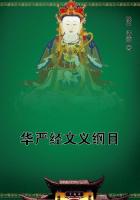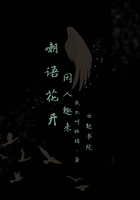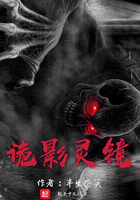Among the higher men whom Zarathustra wishes to save, is also the scientific specialist--the man who honestly and scrupulously pursues his investigations, as Darwin did, in one department of knowledge. "I love him who liveth in order to know, and seeketh to know in order that the Superman may hereafter live. Thus seeketh he his own down-going." "The spiritually conscientious one," he is called in this discourse. Zarathustra steps on him unawares, and the slave of science, bleeding from the violence he has done to himself by his self-imposed task, speaks proudly of his little sphere of knowledge--his little hand's breadth of ground on Zarathustra's territory, philosophy. "Where mine honesty ceaseth," says the true scientific specialist, "there am I blind and want also to be blind. Where I want to know, however, there want I also to be honest--namely, severe, rigorous, restricted, cruel, and inexorable." Zarathustra greatly respecting this man, invites him too to the cave, and then vanishes in answer to another cry for help.
Chapter LXV. The Magician.
The Magician is of course an artist, and Nietzsche's intimate knowledge of perhaps the greatest artist of his age rendered the selection of Wagner, as the type in this discourse, almost inevitable. Most readers will be acquainted with the facts relating to Nietzsche's and Wagner's friendship and ultimate separation. As a boy and a youth Nietzsche had shown such a remarkable gift for music that it had been a question at one time whether he should not perhaps give up everything else in order to develop this gift, but he became a scholar notwithstanding, although he never entirely gave up composing, and playing the piano. While still in his teens, he became acquainted with Wagner's music and grew passionately fond of it.
Long before he met Wagner he must have idealised him in his mind to an extent which only a profoundly artistic nature could have been capable of.
Nietzsche always had high ideals for humanity. If one were asked whether, throughout his many changes, there was yet one aim, one direction, and one hope to which he held fast, one would be forced to reply in the affirmative and declare that aim, direction, and hope to have been "the elevation of the type man." Now, when Nietzsche met Wagner he was actually casting about for an incarnation of his dreams for the German people, and we have only to remember his youth (he was twenty-one when he was introduced to Wagner), his love of Wagner's music, and the undoubted power of the great musician's personality, in order to realise how very uncritical his attitude must have been in the first flood of his enthusiasm. Again, when the friendship ripened, we cannot well imagine Nietzsche, the younger man, being anything less than intoxicated by his senior's attention and love, and we are therefore not surprised to find him pressing Wagner forward as the great Reformer and Saviour of mankind. "Wagner in Bayreuth" (English Edition, 1909) gives us the best proof of Nietzsche's infatuation, and although signs are not wanting in this essay which show how clearly and even cruelly he was sub-consciously "taking stock" of his friend--even then, the work is a record of what great love and admiration can do in the way of endowing the object of one's affection with all the qualities and ideals that a fertile imagination can conceive.
When the blow came it was therefore all the more severe. Nietzsche at length realised that the friend of his fancy and the real Richard Wagner--the composer of Parsifal--were not one; the fact dawned upon him slowly;disappointment upon disappointment, revelation after revelation, ultimately brought it home to him, and though his best instincts were naturally opposed to it at first, the revulsion of feeling at last became too strong to be ignored, and Nietzsche was plunged into the blackest despair. Years after his break with Wagner, he wrote "The Case of Wagner", and "Nietzsche contra Wagner", and these works are with us to prove the sincerity and depth of his views on the man who was the greatest event of his life.
The poem in this discourse is, of course, reminiscent of Wagner's own poetical manner, and it must be remembered that the whole was written subsequent to Nietzsche's final break with his friend. The dialogue between Zarathustra and the Magician reveals pretty fully what it was that Nietzsche grew to loathe so intensely in Wagner,--viz., his pronounced histrionic tendencies, his dissembling powers, his inordinate vanity, his equivocalness, his falseness. "It honoureth thee," says Zarathustra, "that thou soughtest for greatness, but it betrayeth thee also. Thou art not great." The Magician is nevertheless sent as a guest to Zarathustra's cave; for, in his heart, Zarathustra believed until the end that the Magician was a higher man broken by modern values.
Chapter LXVI. Out of Service.
Zarathustra now meets the last pope, and, in a poetical form, we get Nietzsche's description of the course Judaism and Christianity pursued before they reached their final break-up in Atheism, Agnosticism, and the like. The God of a strong, warlike race--the God of Israel--is a jealous, revengeful God. He is a power that can be pictured and endured only by a hardy and courageous race, a race rich enough to sacrifice and to lose in sacrifice. The image of this God degenerates with the people that appropriate it, and gradually He becomes a God of love--"soft and mellow,"a lower middle-class deity, who is "pitiful." He can no longer be a God who requires sacrifice, for we ourselves are no longer rich enough for that. The tables are therefore turned upon Him; HE must sacrifice to us.















